Coronavirus: The lives lost in a single day
- Published
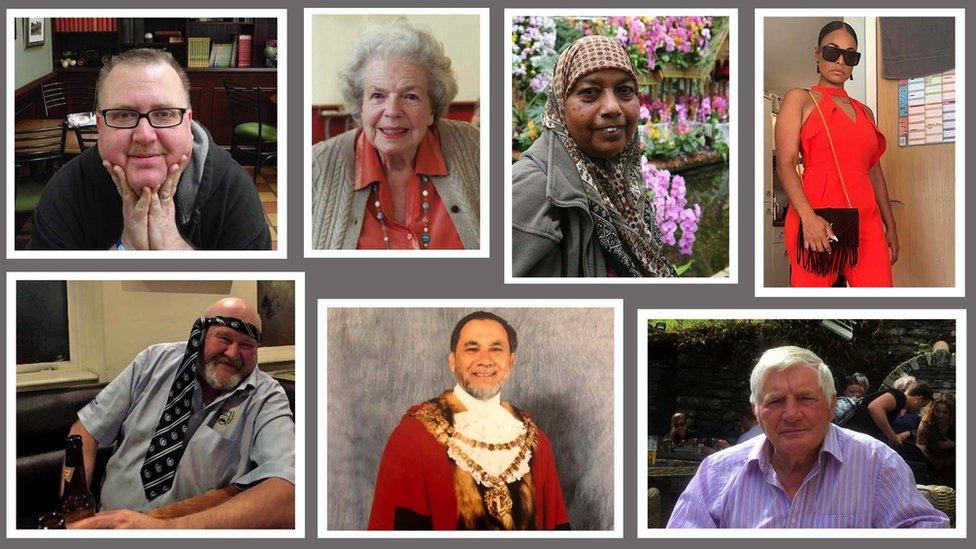
Clockwise from top left: Keith, Mary, Rahima, Salina, Brian, Abdul, Bob
Each day brings confirmation of hundreds more coronavirus deaths in the UK, each one marking a devastating loss for a family or community somewhere in the country.
The UK announced its first coronavirus fatality in early March. By 12 April, which was Easter Sunday, there had been more than 10,000 confirmed hospital deaths. Less than two weeks later, that figure doubled again.
The scale of the pandemic means it's easy for the stories of many of the virus' victims not to be heard.
On 12 April alone, at least 1,174 people died in England and Wales. These are the stories of seven of those.
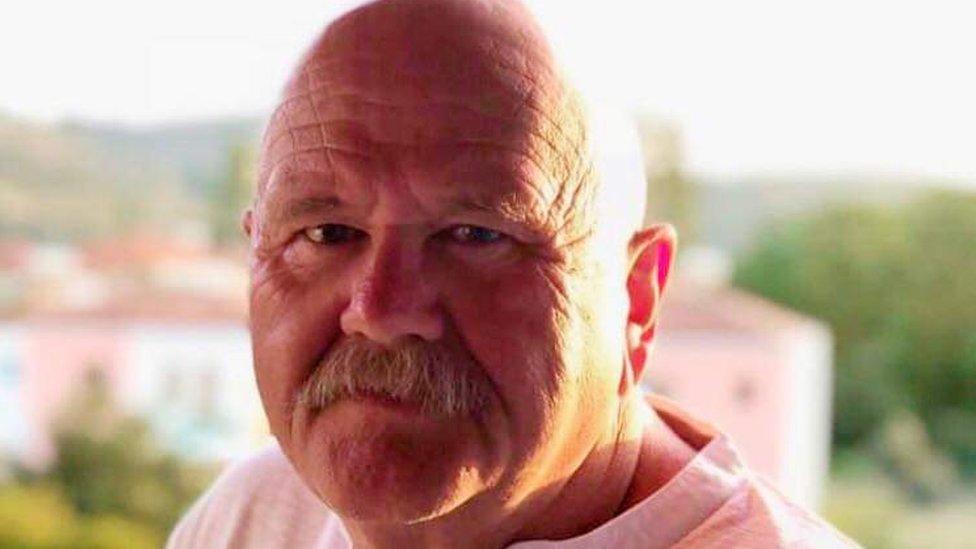
Robert Savory, or Bob to all who knew him, would normally be organising Easter egg hunts or games like "pin the carrot on the rabbit". A doting grandad, Bob was rarely happier than when he was spending quality time with his family.
It was a family tradition for everyone to gather at Bob and his wife Jo's house in Gloucestershire at weekends and on special occasions.
But the house that would have been full with four children and seven grandchildren was quiet this year, as isolation measures prevented everyone getting together. By then, 63-year-old Bob had been admitted to hospital. He passed away that day.
Bob was best known locally for his involvement in rugby club Chosen Hill Former Pupils RFC.
The club said he was "Chosen Hill through and through", having held positions there from player to chairman.
It was in the changing rooms of the club that Bob's shoulder-length mousy brown hair was shaved off some 40 years ago. His shaved head became his trademark look and following his death, friends and family shaved their own heads to raise money for local hospitals in honour of the man they jokingly called Dr Bob.
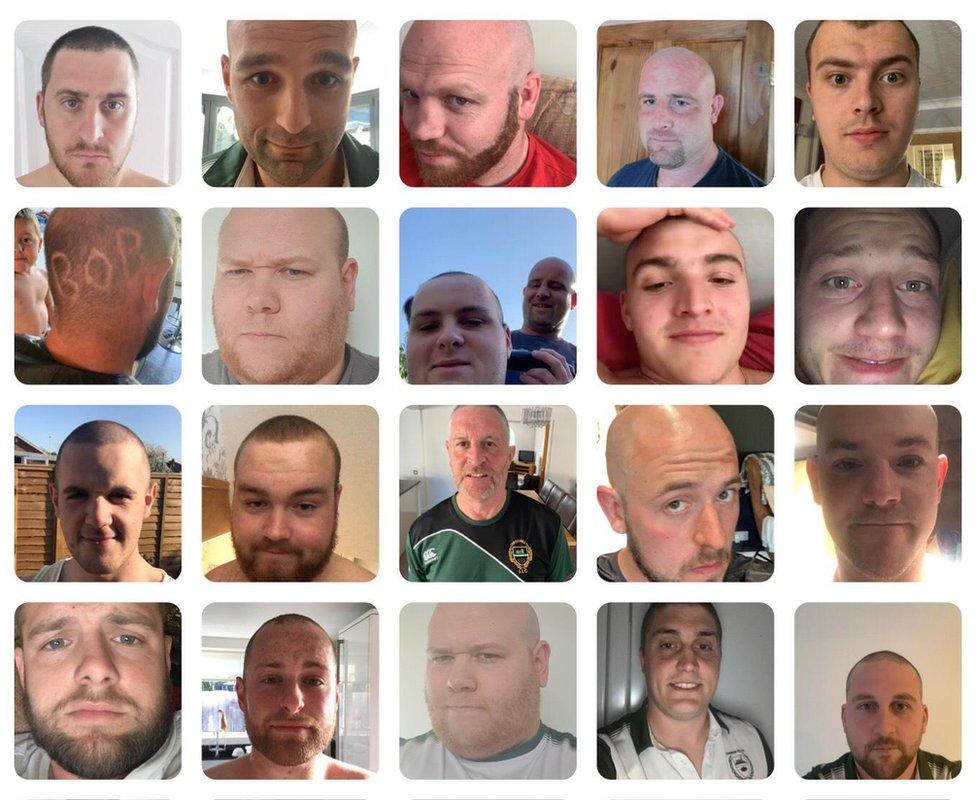
More than 150 miles to the north-west in Cumbria, another sportsman and doting parent also died on Easter Sunday.
Brian Arrowsmith spent his career in the lower reaches of the football league, but was a hero to the fans of his hometown club Barrow AFC.
He started out playing at right-back in the 1960s, but was a versatile defender and served as captain when the club won promotion from the old Fourth Division.
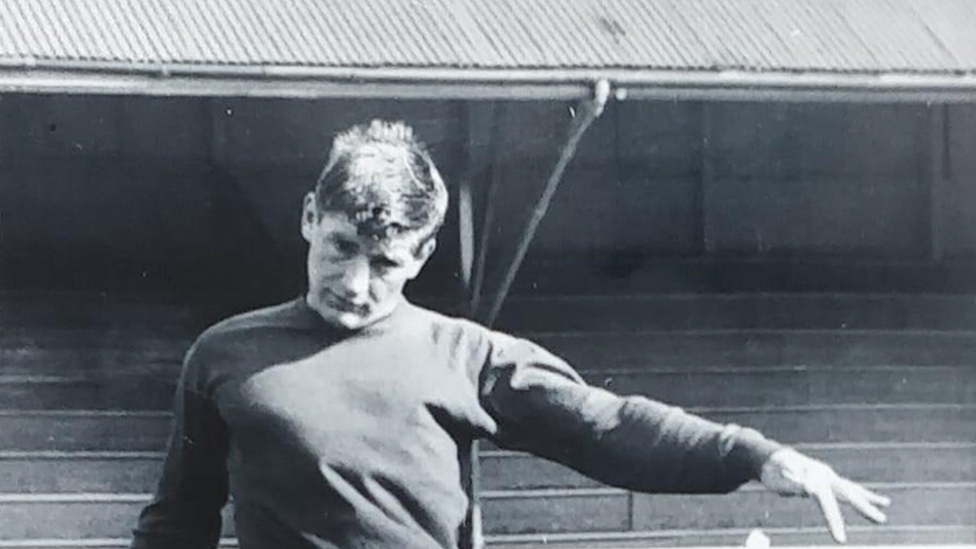
No-one made more appearances in the league for Barrow than Brian, and his impact was celebrated three years ago when the club named a stand after him.
He was particularly proud of playing for his local team. He was born and bred on Walney Island, a sliver of land on the southern tip of Barrow-in-Furness that he described as "God's little acre".
"He was well known in the town and Brian couldn't walk past anybody without stopping and chatting," Jean, his wife of 56 years, said.
Brian remained faithful to the football team for his entire life, transitioning from the pitch to the stands.
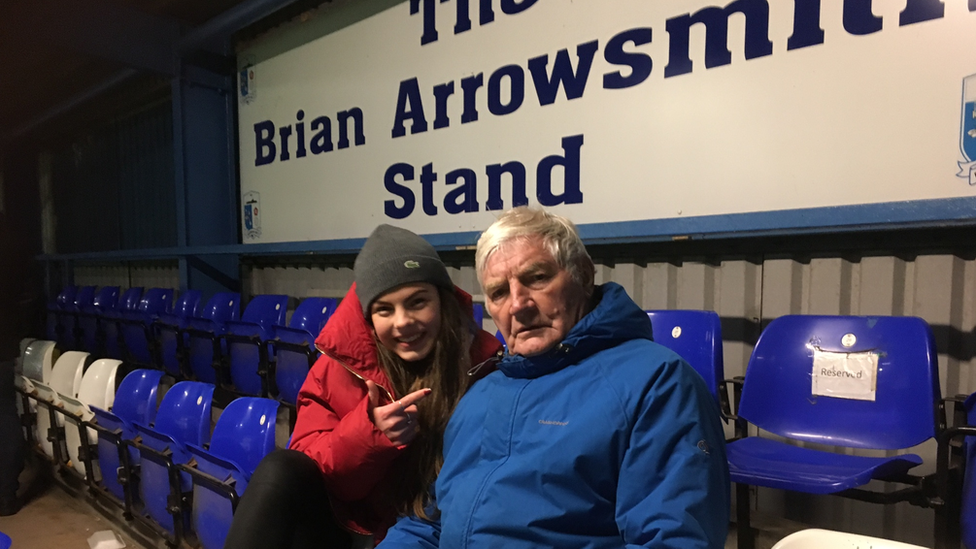
The last match he would ever attend was in early March. Brian's beloved Barrow were defeated 0-2 by Notts County - their first home league loss since September. As usual Brian was offering his support at the sidelines, still hoping his club would win promotion.
Weeks later the father-of-two contracted coronavirus and passed away in hospital, almost three months before his 80th birthday. Jean said he was at peace in his final moments.
"He would tell you if he was here that he had a great life."
Not everyone who passed away on Easter Sunday died in a hospital.
Mary Andrew was one of at least 339 people in England and Wales to die in a care home that day. Those deaths were not included in the more than 10,000 announced by the government up to that point.
Mary had moved into a Derbyshire nursing home about seven months earlier, after a life defined by her independence.
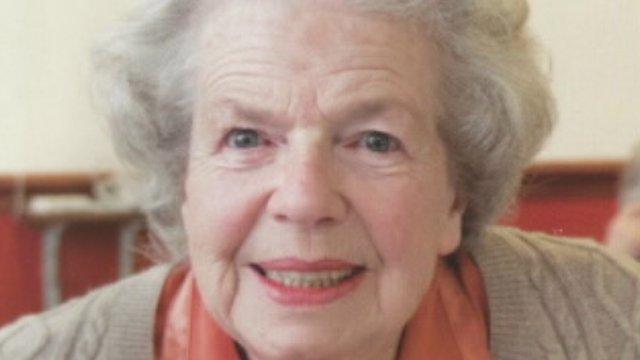
She started a career as a dispensing chemist, but her life's passion was the card game bridge.
Mary set up her own bridge club in the 1960s and played tournaments, working her way up to the top of the standings to become a grandmaster, meaning she was one of the few people able to make a living from the game.
Her son David, who jokingly refers to himself as a "bridge orphan", says the game was an obsession for Mary, who organised tournaments, clubs and holidays.
An intellectual and gregarious woman, she was drawn to bridge because it was mentally stimulating and an opportunity for her to socialise.
It also led to an unlikely encounter with a Hollywood heartthrob, when Mary played in a tournament with Lawrence of Arabia actor Omar Sharif at a London hotel in the 1960s.
Mary shared her love for the game with hundreds of others, teaching people to play even in her 80s.
She was also a "scatterbrain", says her son - she once took him and their family pet to the local shop and accidentally returned with only the dog.
The last time David saw his 92-year-old mother, he was informed that there was a suspected case of coronavirus at the care home, meaning visits would be forbidden and residents kept in their rooms.
Within weeks he got a call to say Mary had contracted coronavirus and that she would be put on an "end of life pathway".
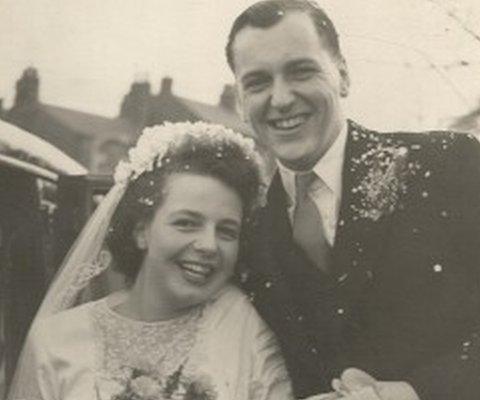
Mary had held on to the ashes of her husband, who died in 2012, so that they could be interred together. In their 63 years together, the couple had rarely spent a night apart.
Coronavirus has not only taken the lives of people in care homes like Mary, but also the people looking after them, like Rahima Sidhanee.
Caring was in her nature. Her home was full of orchids that she bought cheaply when they were past their best and then nursed back to life. If you invited her round for dinner, she would almost certainly bring some of her own food.
The 69-year-old nurse was renowned among friends, family, neighbours and colleagues for her delicious and eclectic cooking. Her samosas stirred excitement at school fairs and efforts by family members to emulate her legendary roti always fell short.
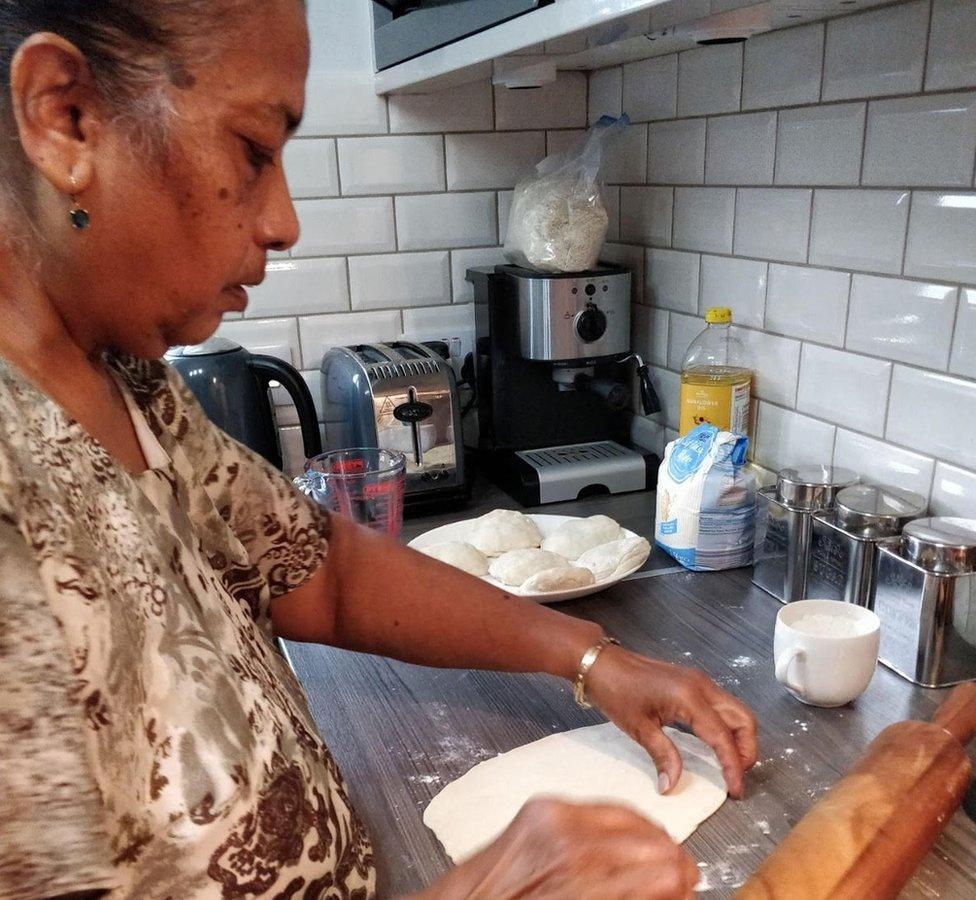
The last dinner her son Abu shared with her was just before the lockdown. He and his wife urged Rahima, who suffered from respiratory problems, to retire or at least take a break from work until the situation improved.
But Rahima was a compassionate woman. She had been working at the Grennell Lodge nursing and care home in the town of Sutton for the past 20 years and was not prepared to give up when they needed her most.
She continued working, and contracted coronavirus three weeks later.
Rahima had what her son described as a basic upbringing on the Caribbean island of Trinidad, with no electricity, gas, or running water at home.
She moved to the UK in the 1960s as part of a drive for recruitment into the NHS, and worked as a nurse and midwife before moving into the care sector.
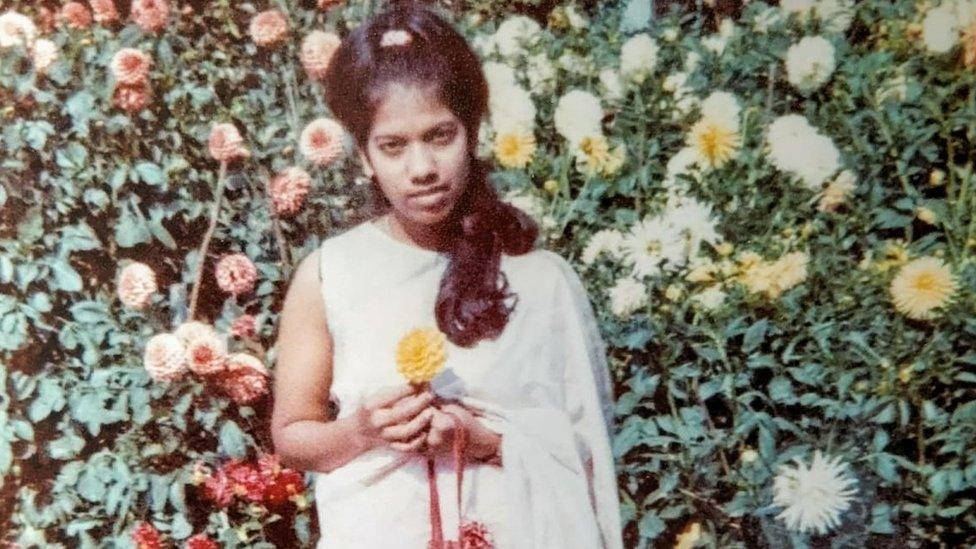
Her family were Hindu, but Rahima converted to Islam when she married. Despite divorcing some 30 years ago, the mother-of-three remained committed to her Muslim faith for the rest of her life.
Described by Abu as quiet and understated, Rahima had suffered from depression in recent years. This meant that she wasn't as socially active as she might once have been, but she always maintained a close relationship with her family, particularly through the regular meals they would share at each other's houses.
At this time in the Islamic calendar, Rahima and her loved ones would normally meet for iftar, the evening meal when Muslims break their fast during Ramadan.
She died 11 days before the Muslim holy month began. One family friend, for whom she made chilli sauce every year, said Ramadan would never be the same again.
Abdul Karim Sheikh also emigrated to the UK in the 1960s.
Born in Jalalpur Jattan in Pakistan's Punjab province as the eldest of 10 children, Abdul was always driven by dreams of a better life.
That led him to the UK, where he settled in Newham, in east London. Abdul quickly became a central member of the community, dedicating his life to civic causes.
"It would literally not matter to him whether he was sleeping - you could knock on the door and he would wake up and answer the call. It didn't matter what time of day you came to our door," his son Saleem said.
"He always put himself second."
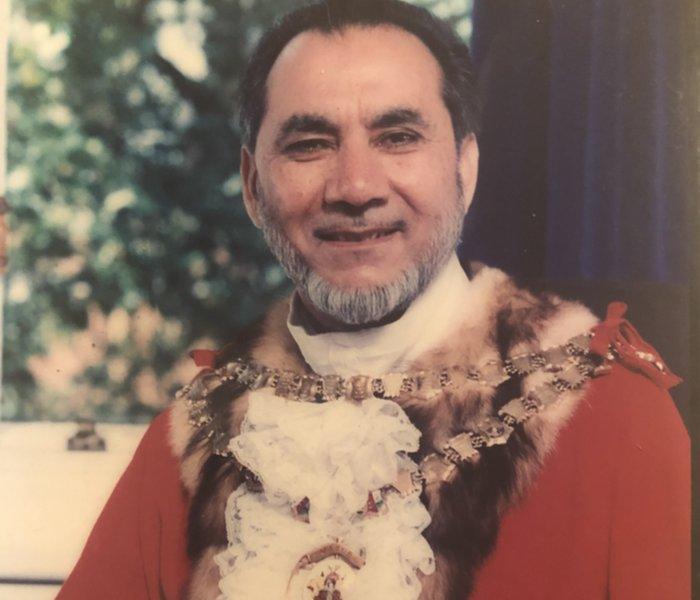
In one of his first acts in the community, Abdul helped found one of Newham's first mosques, serving the religious, social and cultural needs of the area's growing Muslim population.
He was particularly dedicated to promoting racial equality and dialogue between different faiths, in what is one of London's most racially and culturally diverse boroughs.
With a passion for debate and ideas for change, politics was a natural career choice for Abdul. He became a local councillor in 1990 and ceremonial mayor of Newham in 1998.
His work took the boy from Punjab to Buckingham Palace, when his service to the Muslim community was recognised through the British Empire Medal.
His son Saleem said his achievements were a source of great personal pride to Abdul. "Coming from humble backgrounds to [being a mayor] in the UK was amazing," he said.
Even in his 80s, Abdul continued to work on the causes close to his heart. His sons say he remained healthy and independent, and had recently returned from a trip overseas.
But in April, Abdul developed a temperature and breathing difficulties. He was admitted to hospital and passed away within days.
His family have been inundated with calls and cards from those whose lives he touched.
"He was loved by everybody. He's being missed by everyone in the community," his son Naeem said.
While coronavirus has disproportionately affected older people, young people are also among those dying.
At 37 years old, with a thriving business and children she adored, Salina Shaw had everything to look forward to.
Salina strove to make the most of every moment, and employed her favourite phrase each day in urging loved ones to live their "best life".
Salina was a "vibrant character who stood out within a crowd", her sister Simone said - someone who proved to others it was possible to be happy and successful as a single parent.
She ran a child-minding business in Southend-on-Sea, Essex, and had also set up an affordable holiday club, which she hoped would bring communities together and allow parents to continue work during the school holidays.
To Simone, she was a great listener who could always be relied upon to offer sound advice.

Her biggest passion in life was her children. When the coronavirus outbreak hit the UK, she was heavily pregnant with her third daughter.
She was admitted to hospital on 1 April, with suspected Covid-19.
Other than gestational diabetes - a condition that can occur during pregnancy but usually disappears after giving birth - Salina was a healthy young woman with no other health conditions.
Her baby was delivered via Caesarean section on 4 April, but Salina passed away just over a week later.
Her daughters are now being looked after by family. Simone said Salina would "shine within her children forever".
In the nearby Essex town of Romford, Keith Parker was also in hospital with coronavirus.
With several underlying health conditions, Keith, 53, was among those particularly vulnerable to the pandemic. But he had overcome so much that family members jokingly called him "the cat with nine lives".
Joanna first met Keith at school, when she had a crush on his best friend. The pair lost touch before their paths crossed again as adults in 2001. They agreed to meet for a meal, and three years later they married on the hottest day of the year.
In recent years, Joanna had been his full-time carer.
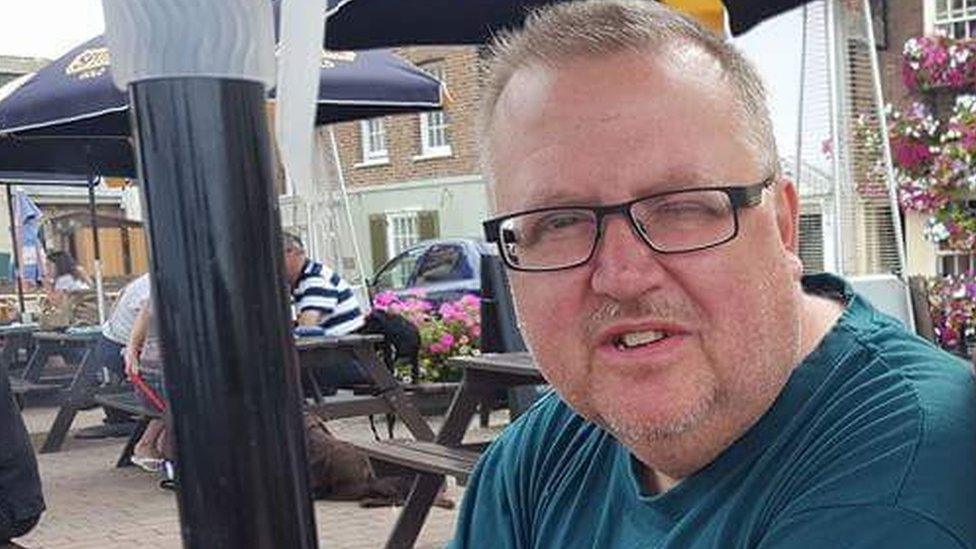
He was known among family and friends for his sense of humour. At a cousin's wedding, he started a flour and squirty cream fight. An old home video shows him putting M&Ms in his nose and blowing them out.
The family loved going on holiday to Butlins, where Keith would be the first person to raise his hand to get up on stage.
He fell ill with coronavirus in the week leading up to Easter Sunday. Other members of the family had also been unwell, but with relatively mild symptoms.
By the Friday morning, Keith's condition had deteriorated - Joanna says his face had turned grey and his cheeks and nose purple from lack of oxygen.
After he was taken to hospital, it quickly became clear that he would not survive.
Joanna was allowed a short visit to say goodbye. Dressed in a gown, gloves and mask she struggled not to kiss or hug him. All she could do was hold his hand.
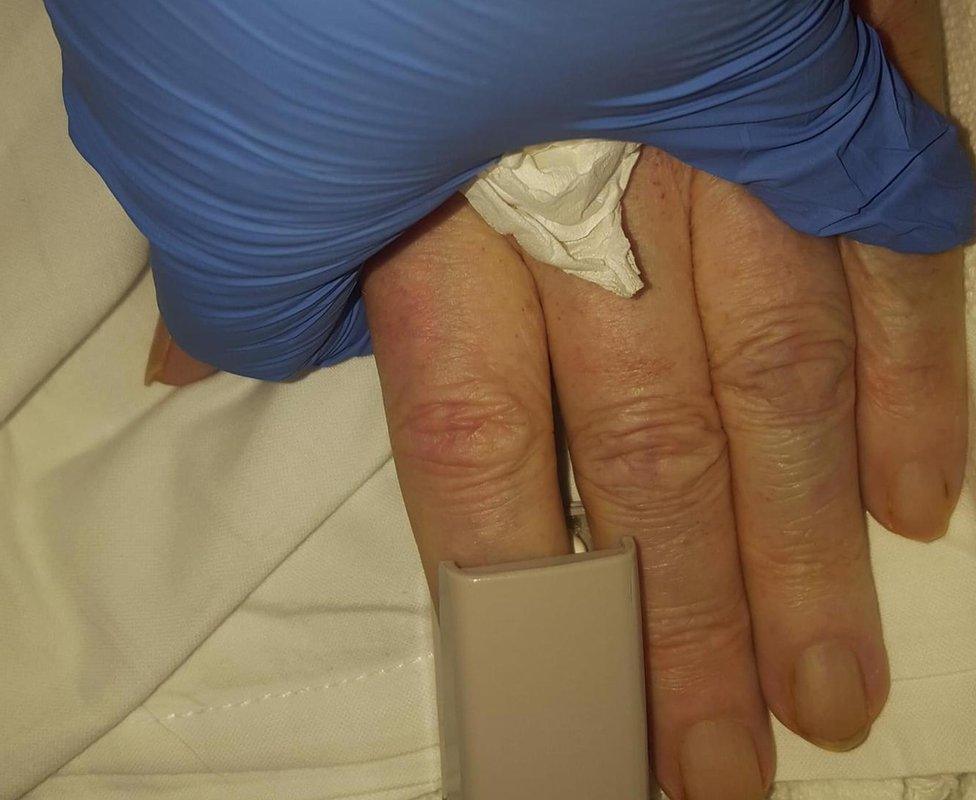
When Joanna left the room, she stole a final look through a window into the room.
"I knew that was going to be the last time I was going to see him," she recalled. "That would be it."
The family are now grappling with the reality of life without him.
His infant granddaughter knew him as Grandad Munchkin. Every night she waves at a picture of him and blows a kiss.

Do you have a story to share about your loved one? You can contact us with your tribute.
Please include a contact number if you are willing to speak to a BBC journalist.
WhatsApp: +44 7756 165803
Tweet: @BBC_HaveYourSay, external
Please read our terms & conditions and privacy policy